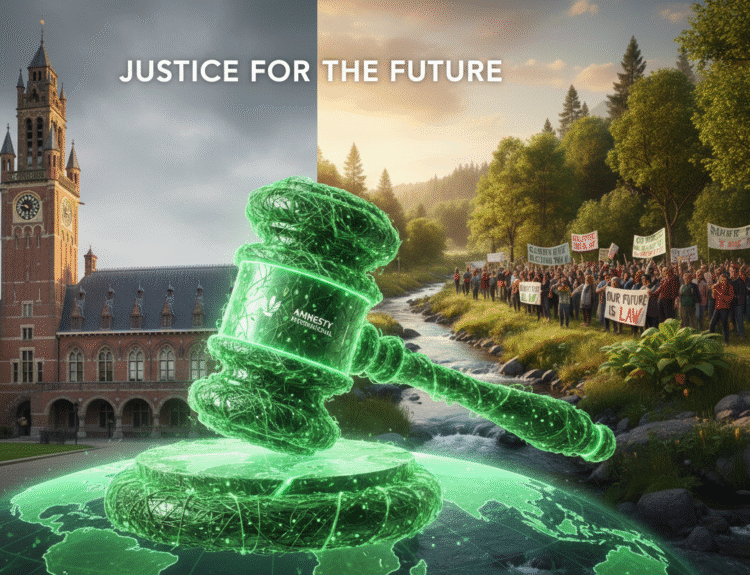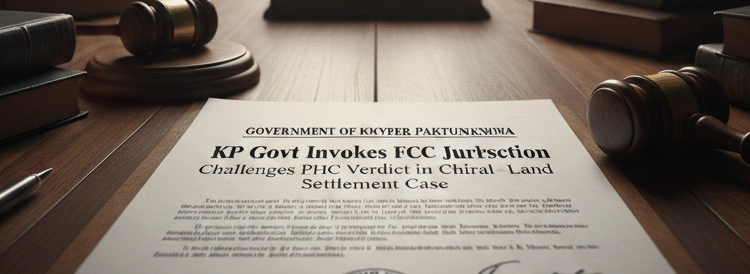ISLAMABAD – Resuming the hearing in response to over three dozen identical pleas challenging the 26th Constitutional Amendment, members of the top court’s Constitutional Bench on Wednesday discussed whether the apex court could still hear such cases if its powers were curtailed.
Justice Jamal Khan Mandokhail remarked that neither the Supreme Court nor the high courts could be barred from hearing cases, even if their jurisdiction was reduced by an amendment. “If the powers of the entire Supreme Court are taken away by an amendment, who will hear the case? The same court would hear the case, right?” he observed.
Dunya News reported that the eight-member Constitutional Bench, headed by Justice Amin-Ud-Din Khan, includes Justices Ayesha A Malik, Mohammad Ali Mazhar, Syed Hassan Azhar Rizvi, Musarrat Hilali, Naeem Akhtar Afghan, Shahid Bilal Hassan, and Justice Mandokhail himself.
The case revolves around the controversial 26th Amendment, passed during an overnight parliamentary session in October last year. The legislation, which altered judicial powers and tenure, removed the apex court’s suo motu authority, fixed the Chief Justice of Pakistan’s term at three years, and introduced a Special Parliamentary Committee to appoint the chief justice from among the three most senior judges. It also formalised the formation of Constitutional Benches in the Supreme Court and high courts.
LAWYERS’ ARGUMENTS
During Wednesday’s proceedings, former Chief Justice Jawwad S Khawaja’s counsel, Khawaja Ahmed, contended that the 26th Amendment did not prohibit the formation of a full court. He added that the Supreme Court retained authority to hear constitutional challenges, even if its jurisdiction were legislatively limited.
Justice Mazhar noted that the bench would issue an order if the petitioner could prove that the amendment violated the Constitution’s basic structure. “None of us has denied that we will not hear the 26th Amendment on its merits,” he said.
Khawaja Ahmed further argued that the necessary procedure had not been followed for the constitutional amendment’s passage, asserting that even under curtailed powers, “the Supreme Court is still in its place.” When asked to whom the bench could issue directions to form a full court, he replied, “Do not underestimate your powers; you can issue a judicial order, and it will be binding.”
Upon the completion of his arguments, the court adjourned the hearing until Thursday, when Mustafa Nawaz Khokhar’s lawyer, Shahid Jamil, is expected to present his case.
FULL COURT QUESTION
Justice Ayesha Malik, while addressing counsel Khawaja Ahmad Hosain, observed that the 26th Amendment did not bar a full Supreme Court from hearing cases before the Constitutional Bench under Article 191A. The article, she noted, is procedural in nature and does not restrict the Supreme Court’s jurisdiction.
Justice Malik explained that while Article 191A limits which benches can exercise specific jurisdictions, it does not prevent the court as an institution from doing so. “For some reason, we keep reading this as an ouster,” she remarked. “It simply says no other bench will do it, not that the Supreme Court itself is barred.”
Advocate Hosain, representing veteran politician Afrasiab Khattak, asserted that the judiciary’s credibility “does not depend on the 26th Constitutional Amendment” and called for the case to be heard by an independent full court. Justice Mandokhail responded, asking whether the lawyer distrusted the current bench. “You said the case should be before another independent bench. Will we be included in that?” he queried.
Supreme Court justices debate the 26th Amendment’s impact on judicial powers as lawyers urge a full court hearing, reaffirming that the apex court retains authority to hear constitutional challenges.
Hosain clarified that he had not implied the bench was not independent, only that the original full court should decide the amendment’s validity. Justice Rizvi noted that Hosain’s petition used the term “original full court”, while Justice Mazhar commented that if 26 judges were included, “it would become a regular bench, not a Constitutional one.”
PETITIONS AND PROCEEDINGS
The petitions, filed by the Pakistan Tehreek-e-Insaf (PTI), Jamaat-e-Islami, Sunni Ittehad Council, bar associations, and several former presidents of the Supreme Court Bar Association, challenge both the procedure and substance of the amendment. They allege that Parliament did not properly follow Article 239’s two-thirds requirement and that votes were influenced by coercion, including claims that seven PTI lawmakers were abducted during the session.
Petitioners have urged the court to strike down the entire 26th Amendment or its key provisions, arguing that it undermines judicial independence. The challenged sections include new clauses in Article 175A introducing annual performance evaluations of high court judges and altering the appointment process of the Chief Justice. They have also requested the Supreme Court to declare the Practice and Procedure Act 2024 and the Supreme Court (Number of Judges) Act 2024 void, as both stem from what they describe as an “unconstitutional” amendment.
The ongoing hearings, live-streamed on the Supreme Court’s YouTube channel since 8 October, have drawn intense legal scrutiny. The bench will first decide whether the petitions should be heard by a full court comprising all Supreme Court judges or by the existing eight-member Constitutional Bench before moving to the merits of the 26th Amendment itself





